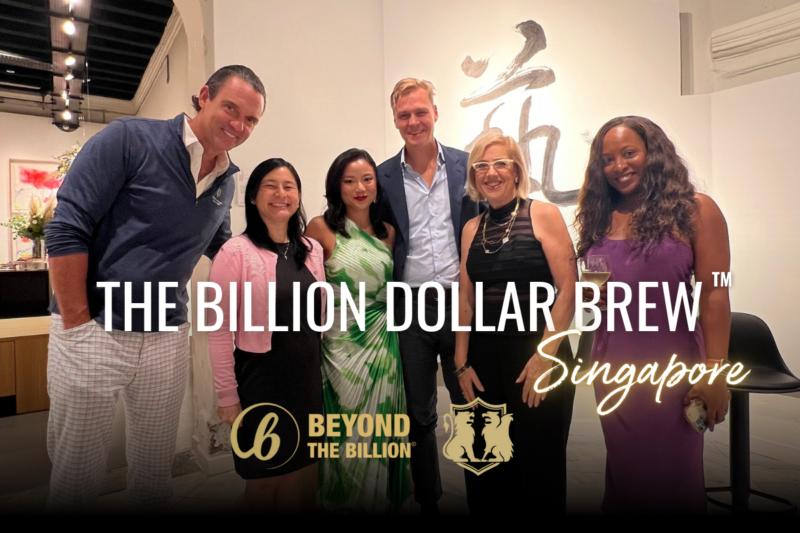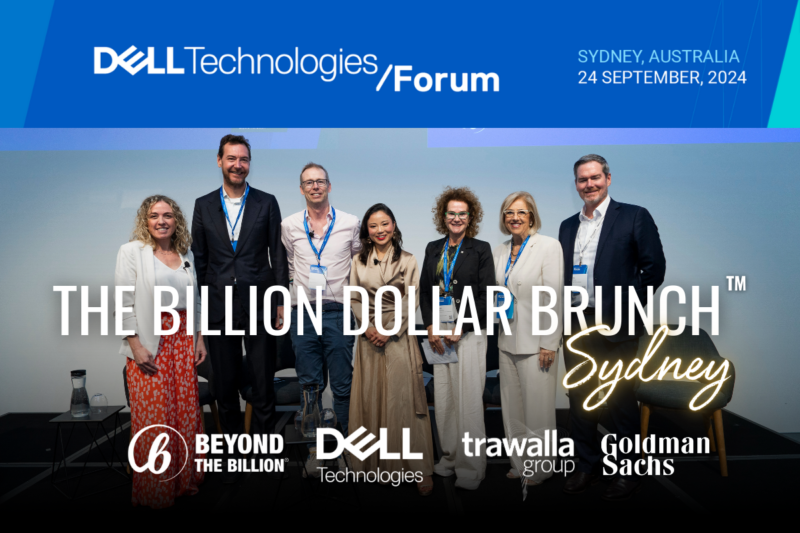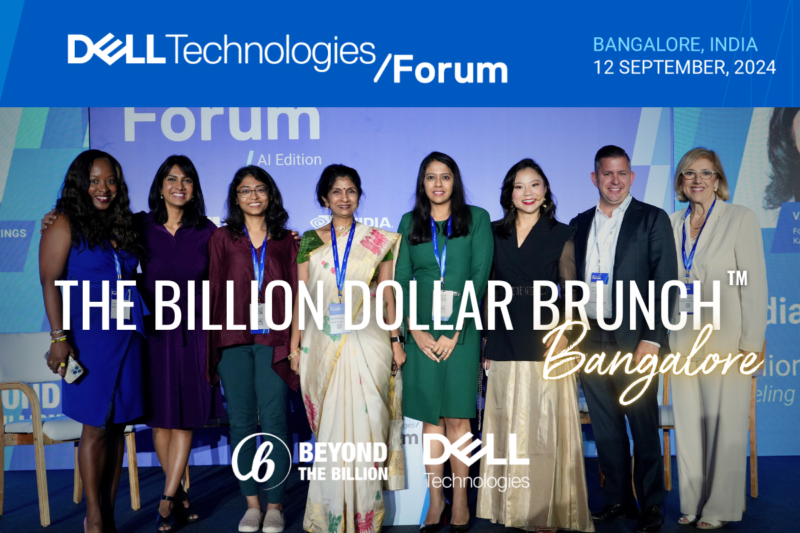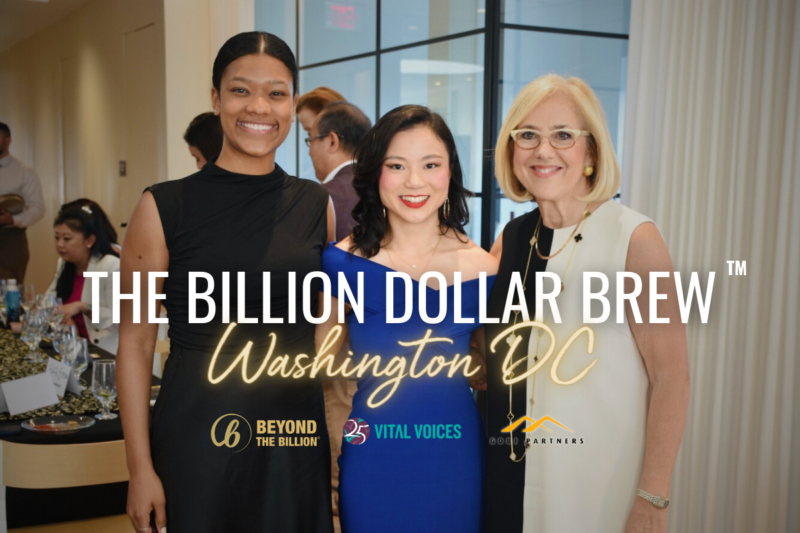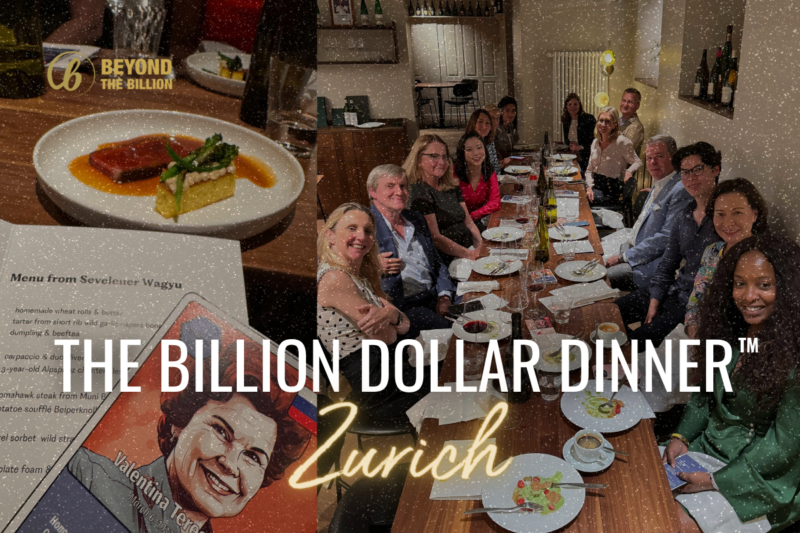By: Janine Marderian
“Investing in women and people of color isn’t a nice-to-have; it is essential for sustainable innovation”- Ann Cairns
In partnership with Mastercard, Beyond the Billion (BTB), a global consortium of venture funds that have pledged beyond $1bn to be invested into women-founded companies, convened a group of experts from across the venture ecosystem to discuss their thoughts on how the ongoing COVID-19 global crisis is shaping approaches to funding innovation.
At our inaugural Billion Dollar Bytes event, Cédric Bisson, Partner, Teralys Capital Ann Cairns, Executive Vice-Chair, Mastercard Stéphanie Chretien, Partner, Demeter, and Ollen Douglass, Managing Partner, Motley Fool Ventures; shared their greatest concerns, their reasons for optimism and shared how investors can craft substantive, long-term strategies during this period of uncertainty and upheaval. Three major themes emerged from our conversation:
1. The structures of global industry are changing.
Ann Cairns explained that as e-commerce booms and in-person consumption continues to be minimal, small and medium-sized businesses are going online, a move that has the potential to permanently expand the scope of their reach. In addition to evolving their consumer strategies, firms are also adapting on the production side of the equation; single, consolidated supply chains may be efficient in the short term, but they also carry lopsided exposure that can become disastrous if and when a crisis hits. Similarly, while just-in-time models provide cost savings under normal circumstances, COVID-19 has shown how shortages of key products and capabilities — ranging from hand sanitizer to hospital beds to vaccine vials — can put undue strain on our vital institutions and our economy as a whole.
Cairns also noted how COVID-19 is bringing the need for sustainable investments to the forefront. As governments step in to manage the immediate health impacts of the crisis, they now do so with an eye toward the future ramifications of their decisions. While global leaders have deployed a range of responses to the current crisis, all are concerned about how future large-scale disasters can be prevented and mitigated more effectively. As governments work with their private sector counterparts on pressing needs like finding a vaccine and effective therapeutics, these two stakeholder groups can and should also collaborate on longer-term, more structural issues that pertain to the public good and require innovative solutions.
The Paris Green Fund is a case study of this sort of cross-sector collaboration. With the goal of accelerating private investment in sustainable initiatives, the city of Paris backed Demeter to develop innovations that spur the ecological transition in the region. Since then, Stephanie Chretien and the rest of the team at Demeter have taken the €15M investment from the city and grown it to a €160M fund.
Governments around the world and firms across industries are being forced to take a hard look at how they calculate risk, prepare for the unknown, and solve complex problems. Many are adapting their business models accordingly; many more will be forced to do so in the days ahead.
2. Global economic shifts create space for new entrants with diverse perspectives and outside-the-box approaches.
These new ways of doing business will require fresh ideas and approaches. Ollen Douglass explained that this can cut both ways: funds that lack diversity will struggle to innovate if they keep to the status quo. Similarly, emerging needs and considerations present a great opportunity to break down the barriers of the old network that have made it difficult for women and other minorities to gain traction with the VC community. Stakeholders across the VC landscape have the chance to create new pathways that increase access for new entrants who can think beyond the status quo and leverage their creativity into meaningful solutions. Douglass himself has done this with Motley Fool Ventures, which is a retail fund of 800 LPs who are highly engaged with Motley Fool’s information and services. The Motley Fool team identified a gap in the VC space, took a different approach, and has seen a high degree of success as a result.
Cédric Bisson cited the lessons from a past crisis as indicators for our current moment; many founders and first-time funds struggled during the Great Recession while investors focused their support on their existing core relationships. While it was difficult for newcomers to emerge during this period, many of the ones that did have performed excellently — the key differentiator is those founders are able to reimagine the status quo, try something different, and present unique value. Likewise, Bisson predicted that prioritizing diversity will be key to propelling the global community out of the current crisis. Sectors such as travel and hospitality, bio-pharmaceuticals, and education present a myriad of opportunities for diverse groups to create businesses and funds with new approaches.
3. Funders must be intentional about identifying, cultivating, and supporting non-traditional players who have new and creative solutions.
None of the innovation needed to fuel solutions can happen if investors are unwilling to transcend the old ways of doing businesses. LPs must be open-minded to these new ideas and recognize that many past venture projects (such as innovation in technology and life sciences) are now essential to keeping the global economy afloat. Bisson explained that investors have a two-fold opportunity to weave diversity into the fabric of their strategies; they can and should make it part of their core mission to invest in newcomers and influence their existing groups to become more diverse over time. These efforts require intentionally dismantling the institutional barriers that keep outside groups from participating in the venture community. Douglass described a specific issue he encountered with one of the early female investors in Motley Fool Ventures; after building a strong relationship with this investor, her paperwork arrived in her husband’s name. Douglass did a double-take, made the connection, and realized that his investor’s identity had been lost entirely on the way into the fund. Rather than allow this important relationship to atrophy, undocumented and unacknowledged, Douglass addressed the problem and made it clear that he wanted her to be in the fund both functionally and in name. This anecdote illustrates how small details can have an outsized impact. Something as simple as stopping to account for individual people — and fully see them for who they are — can prevent certain voices from getting lost in the shuffle.
Investors must resist the myth that emphasizing diversity comes at the expense of good governance and good fundamentals. Rather, as Chretien explained, a serious approach to diversity and other ESG issues can create a unique advantage, as seen in the better performance of gender-mixed teams. She sees this from her own portfolio at Demeter, where diverse teams have tended to be built for resilience, and have done well despite the pressure of this crisis. We know that having multiple different perspectives leads to better results; investors and fund managers alike would do well to recognize and follow the straight line between value creation and diversity.
Cairns summarized this reality succinctly: investing in women and people of color isn’t a nice-to-have; it is essential for sustainable innovation. Companies that want to be global, sustainable, and innovative are what will carry us into the future; we do well by doing good.
—
About Beyond The Billion
Beyond The Billion™(BTB), from the Founders of The Billion Dollar Fund for Women™ was founded to address the gender venture investment gap where women-founded teams receive less than 3% of total VC funding. In less than a year, BTB mobilized a global consortium of over 80 venture funds committed to investing $1Bn in women-founded companies. BTB’s mission is now to catalyze the larger landscape of capital, ensuring the continued capacity to invest in women-founded companies by bridging venture funds and limited partner investors. These include institutional investors such as endowments, foundations, international financial institutions, and development financial institutions; as well as strategic corporates, family offices, wealth managers, and high net worth individuals to drive the agenda and capital, collectively.
Join us for the next Billion Dollar Byte on “Scaling Inclusive Innovation: The Role of Venture Capital” July 9th here.
Have a success story you’d like to share? Looking to work with us?
Contact us on [email protected].
More information: www.beyondthebillion.com
About the Author: Janine Marderian
Janine Marderian Nichols is an Associate who supports Beyond the Billion’s work to mobilize investment in female founders and increase opportunity and access throughout the venture ecosystem. Currently based in Jakarta, Indonesia, Janine is an alum of Deloitte’s Government & Public Services Strategy Consulting Practice and the former Manager of External Affairs at the American Enterprise Institute. Janine holds an MBA from Georgetown University’s McDonough School of Business and a BA in Philosophy from Biola University.


